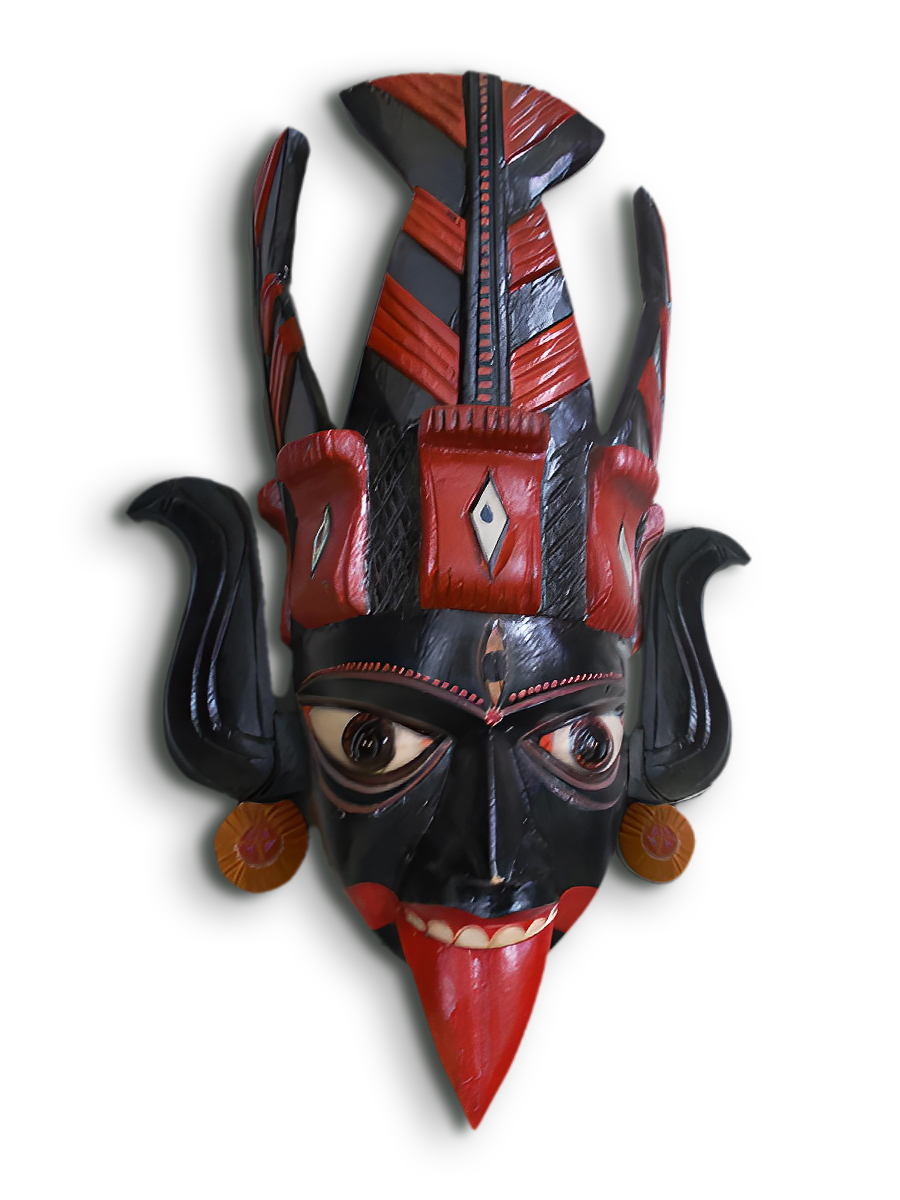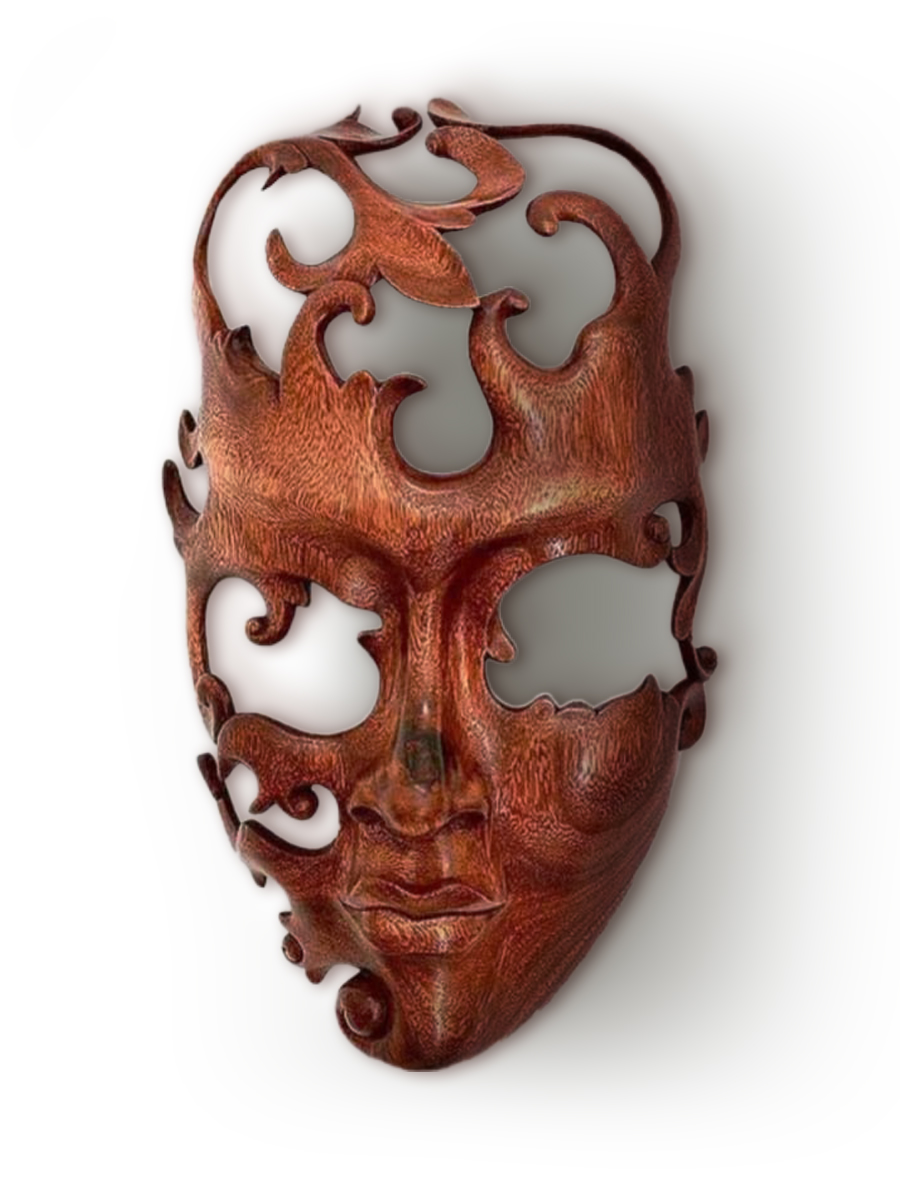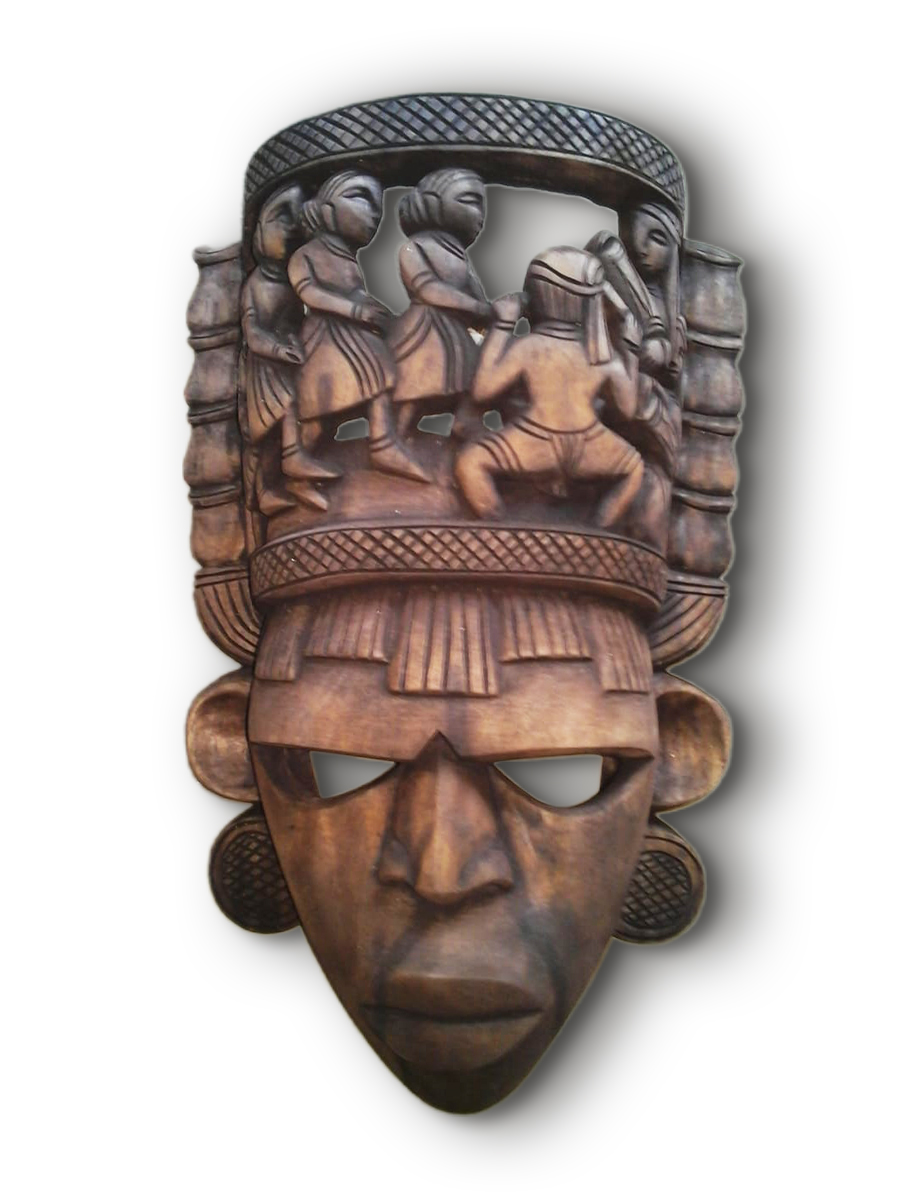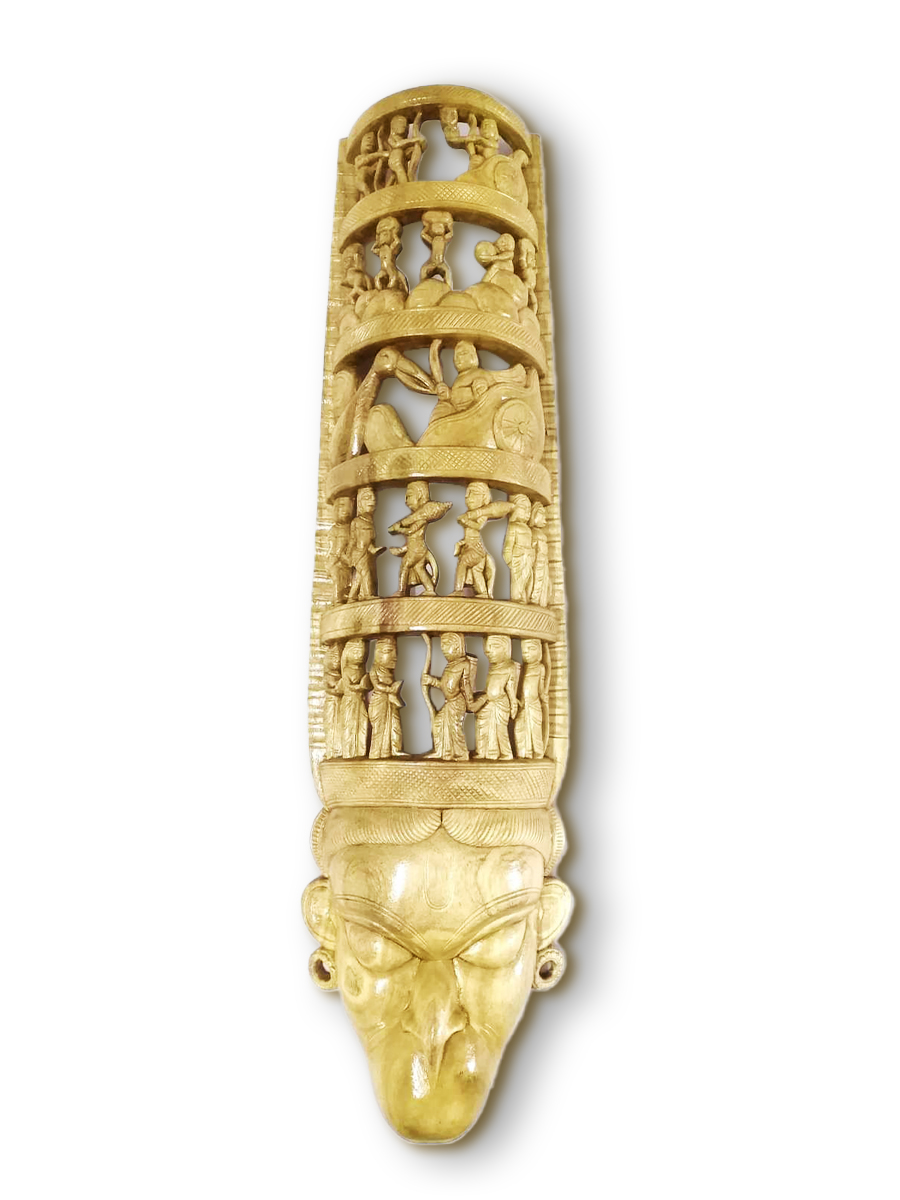The Magic of Wooden Handcrafted Masks for Wall Decor
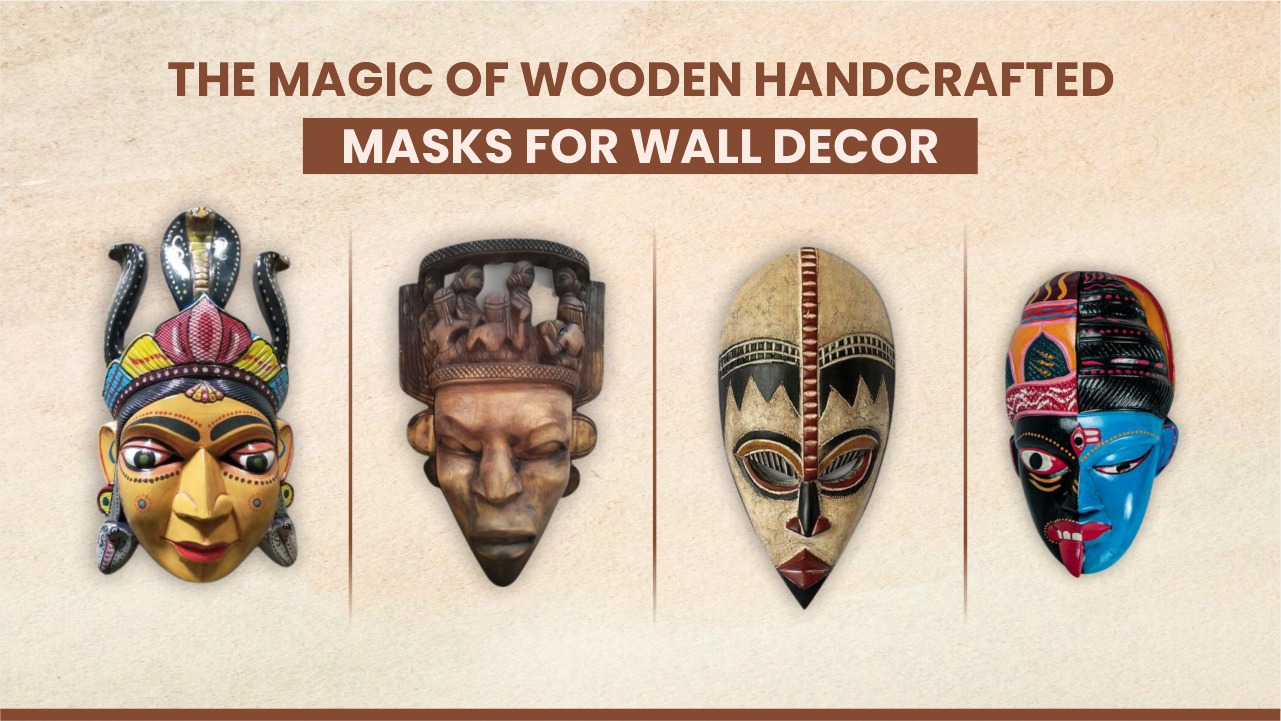
Masks, with their ability to hide and reveal at the same time, have held an enduring fascination across civilizations through time. They have been more than mere adornments - they are representatives of traditions, beliefs, and artistic expressions. They are ubiquitous in their presence in the rituals of ancient civilizations and pop culture through the ages. Historically, masks were used in performances and were believed to endow the performer with special, higher powers. Throughout time, masks have been used to strongly enhance certain aspects of a personality or character while casting an air of intrigue person behind the mask.
Whether used in a spiritual or mundane context, masks continue to be enigmatic and powerful!
A Global Legacy: Masks Across Civilizations
Civilizations around the world have harnessed the power of masks to communicate, celebrate, and also connect with the spiritual realms. The ancient Egyptians created special masks to accompany the deceased into the afterlife. Many African tribes used masks in elaborate ceremonies and rites of passage. The indigenous peoples of the Americas adorned wooden masks to invoke spirits and tell stories through dance. Almost every civilization across the globe used masks in war to literally ‘present a brave face’ and superhuman powers to strike terror into the hearts of their enemies.
Hand carved wooden wall decor of Goddess Kali - Design 7
India's Connection to Masks: A Glimpse into Diversity
In India too, masks have been integral to cultural expression for centuries. From the vibrant Kathakali masks of Kerala to the wooden masks used in religious festivals, each piece tells a tale of cultural richness.The Chhau dance of Odisha is semi-classical with martial and folk traditions and uses intricate wooden masks to portray gods, goddesses, and mythological characters. The Yakshagana dance of Karnataka features masks that vividly depict heroes, villains, and deities. The celebrated Ram Lila performances during Dussehra in northern parts of India showcase towering wooden masks, especially of Lord Rama and the demon king Ravana. These examples highlight the intricate artistry and deep integration of masks in Indian culture.
Hand carved wooden wall decor - Exotica
The Wooden Mask
The choice of wood by traditional mask makers in Indiarbitrary; it's a conscious decision to honour nature's bounties. Once carved from Neem wood, these masks are now carved from locally available woods like gamar (beechwood), mango, kadam, bamboo, teak and sandalwood. These woods are sturdy, have a natural resistance to pests and are easily carved.
Adhering to a meticulous process, artisans sculpt the masks from seasoned wood blocks, forming the basic structure using an adze. Delicate carving and chiselling ensue, crafting the final shape, while intricate details like hollowed eyes, nose, and mouth are etched. Post-carving, the masks undergo around 4-5 days of meticulous chiselling to achieve a refined finish. Sandpapers of varying grades ensure smoothness, and natural dyes, derived from Basatbot and jia trees, contribute rich hues. The masks are then coated with a natural varnish made from local pine tree terpenes, ensuring both durability and a polished appearance. Every mask boasts a unique style and colour palette that mirrors the character it portrays.
The journey of crafting a wooden mask is a labour of love that requires expertise and dedication. The process involves careful wood selection, precise carving, and intricate detailing. Though ‘wooden face’ refers to lifelessness, a ‘wooden mask’ is exactly the converse, and is an epitome of vibrancy and life! These masks are a wonderful wooden art form.
Hand carved wooden wall decor - Tribal Deity with Elaborate Headgear
Dinajpur: The Birthplace of Masks
Dinajpur, in West Bengal, is renowned for its exceptional handcrafted wooden masks. These masks, locally called "Mukhosh," play a pivotal role in their famed Gomira dance. The tradition is to make two distinct types of wooden masks: one, heavier and designed for decorative display, and the other, a lighter ceremonial mask worn during the dance. Accompanied by the mesmerising beats of dhak and kansar (both percussion instruments), Gomira dancers are enveloped in a trance-like state, empowered by the divine energy of their masks. These performances are not just art; they are offerings to the Gods, propitiating guardian deities for a bountiful harvest and invoking positive energy while dispelling malevolent forces.
Storytelling Through Stylization
The intricate stylization, designs, and motifs adorning these masks are more than aesthetic choices - they represent ideas/values and are also conduits of stories. For instance, masks used in traditional dances often embody concepts like fertility, bravery, and spiritual connections. The iconic masks of Kathakali narrate mythological sagas, depicting valour, honour, and cosmic struggles. These stories reflect religious devotion, cultural practices, and local beliefs. And then, we have the spectacle of Lord Rama killing Ravana unfolding especially during the Dussehra festival. The designs and themes woven into the masks also celebrate life's milestones, appease deities, and mark significant moments in a community's journey.
Enhancing Home Aesthetics with Beautiful Decorative Masks
Incorporating handcrafted wooden masks into home decor is a celebration of heritage and artistry. These wooden art have the power to transcend visual appeal, connecting us with diverse cultures and traditions. They transform living spaces into vibrant showcases, sparking conversations and forging connections. It's an invitation to explore the beauty of humanity's creative legacy.
Handcrafted masks can become captivating centrepieces in living rooms, sparking intrigue and dialogue. Grouping masks from different cultures creates thematic corners that invite exploration. In bedrooms, masks offer personalised statements, reflecting an appreciation for diversity and culture. These masks aren't mere decor; they're conduits of connection.
Hand carved wooden wall decor of the Story of Ramayan on Hanuman's Crown
Masks as Gifts: A Thoughtful Gesture
Once the beauty and significance of owning masks is understood, it is a natural extension that they become meaningful and unique gifts! They carry stories and cultural significance, making them thoughtful tokens of appreciation. Whether it's a housewarming gift or a gift for a special occasion, a handcrafted mask is a testament to the giver's thoughtfulness. You could browse through some stunning original pieces, sourced directly from Dinajpur and also elsewhere, on Planet Handcrafted, a definitive online platform for fine, authentic handcrafted products. They have an extensive and diverse array of visually stunning and authentic masks made by generational artisans.
A Rich Legacy
In the rich tapestry of human history, masks have left an indelible mark—a testament to our creativity, beliefs, and desire to connect with something beyond ourselves. Handcrafted wooden masks as wall decor continue this legacy, inviting us to celebrate heritage, craftsmanship, and the magic of stories told through art. Embrace the beauty of human diversity and pay homage to the myriad cultural hues that unites our species across cultures and generations..
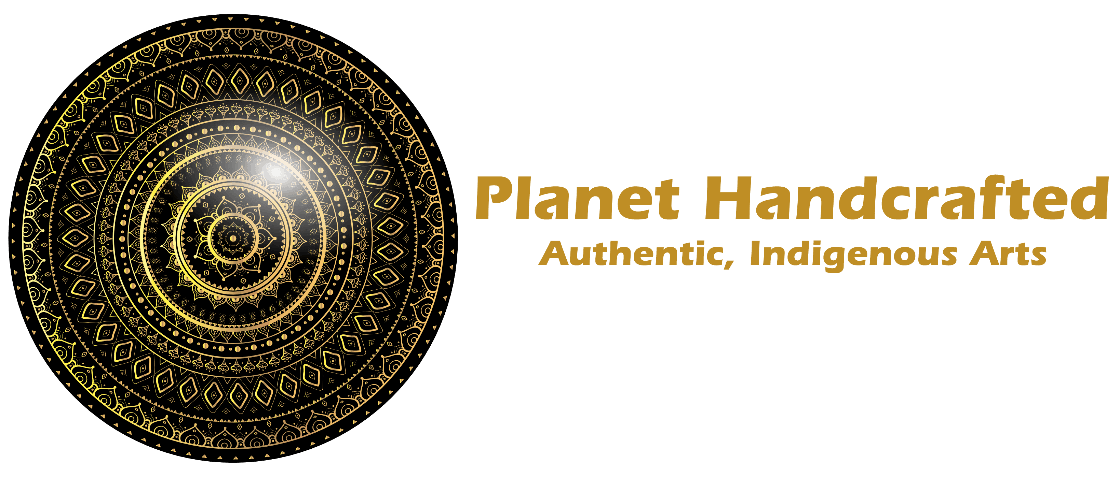

 USD
USD  GBP
GBP EUR
EUR AED
AED



